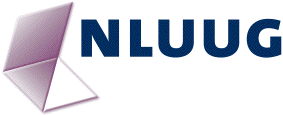 | ||
Let op: Deze pagina komt uit ons archief. Ga voor actuele informatie en nieuws naar onze vernieuwde website. |
||
How a large scale opensource project worksThe FreeBSD Project Explained
Author: Dr. Robert N.M. Watson Speaker: Paul Schenkeveld AbstractThe FreeBSD Project is one of the oldest and most successful open source operating system projects, seeing wide deployment across the IT industry. From the root name servers, to top tier ISPs, to core router operating systems, to firewalls, to embedded appliances, you can't use a networked computer for ten minutes without using FreeBSD dozens of times. Part of FreeBSD's reputation for quality and reliability comes from the nature of its development organization -- driven by a hundreds of highly skilled volunteers, from high school students to university professors. And unlike most open source projects, the FreeBSD Project has developers who have been working on the same source base for over twenty years. But how does this organization work? Who pays the bandwidth bills, runs the web servers, writes the documentation, writes the code, and calls the shots? And how can developers in a dozen time zones reach agreement on the time of day, let alone a kernel architecture? This presentation will attempt to provide a brief if entertaining snapshot into what makes FreeBSD run. Author bio:Robert got his PhD at the University of Cambridge Computer Laboratory, after spending about six years in industry working in commercial and government-sponsored operating system and network security research and development. His services are available as a private consultant and independent contractor working in operating system design and implementation, network protocol design and implementation, and systems security. He is well known for being a member of the FreeBSD Core Team, security officer team, and release engineering team, and an active developer in the areas of security and file systems. Furthermore, he Robert was president of the board of the FreeBSD Foundation in 2003. Robert founded the TrustedBSD Project in 1999 as well as the OpenBSM Project in 2005, which provide trusted operating system and audit extensions on the FreeBSD platform. Significant results of his work have now been integrated into the FreeBSD, NetBSD, OpenBSD, Linux, and Mac OS X operating systems, as well as many commercial products. While at Carnegie Mellon, he worked with the Coda Project, a weak consistency distributed file system aiming for improved support for mobility and fault tolerance. Speaker bio:Paul Schenkeveld started programming computers while at high school when very few students had ever seen a computer. After finishing high school he decided to find a job as few people knew computers and demand was high. He first met UNIX in 1983 and immediately knew this was the OS to work with. After five jobs programming and supporting computers he became an independent consultant for UNIX, IP networking and security. Having worked with many commercial UNIX versions during ten years, he found FreeBSD which he first installed when version 1.0 came out, to be much more fun to play with. Today, he spends most of his time on projects involving (Free)BSD and, networking and security. Paul helped organize EuroBSDcon 2011 and is co-founder of the EuroBSDcon Foundation. Also, in 2011 he founded his new company called BSDeurope.eu. Paul likes travelling, is active in Scouting and loves the food his Thai wife cookes for him and their son. |
||
| 2012-04-06 | ||
|
NLUUG, Postbus 8189, 6710 AD Ede, NL | ||